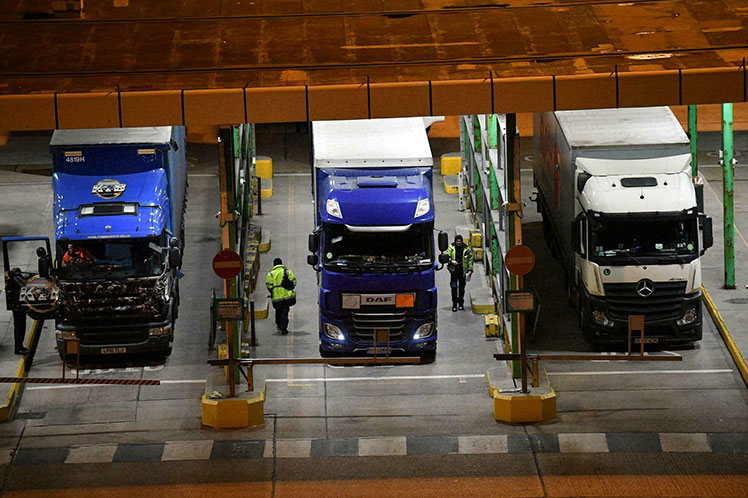As explained by David Frost, the minister in charge of Brexit affairs with the European bloc, the decision seeks to prevent British companies from having to spend time dealing with the new regulations at a time when they are concentrating on restoring the damage caused by the Covid-19 pandemic.
As part of the withdrawal treaty that came into force in January this year, the United Kingdom left the European single market and customs union, so all goods crossing the English Channel must undergo health and safety controls on each side of the border.
Although the EU began to implement the agreement since last April, the British government claimed later that British companies needed more time to adapt to the new post-Brexit scenario.
The presentation of customs declarations was postponed to January 2022, while security controls and health certificates for exports will not be required until July of that year. This way, companies will have more time to prepare, Frost said.
London decided last week to extend the grace period of the so-called Northern Ireland protocol, which allows the transfer of goods between Great Britain and Northern Ireland without having to comply with EU regulations.
The Brexit deal leaves Northern Ireland within the European single market and customs union to avoid the establishment of a physical border with the Republic of Ireland, but groups loyal to the British crown fear the protocol will alienate them from London and demand its elimination, and at least a renegotiation of its terms.
pgh/llp/mem/nm









